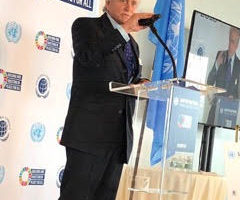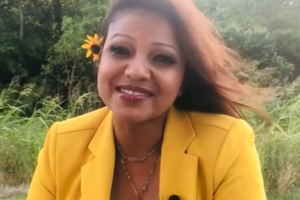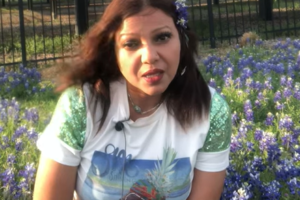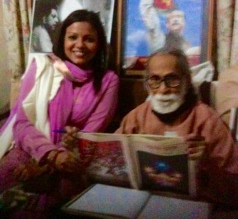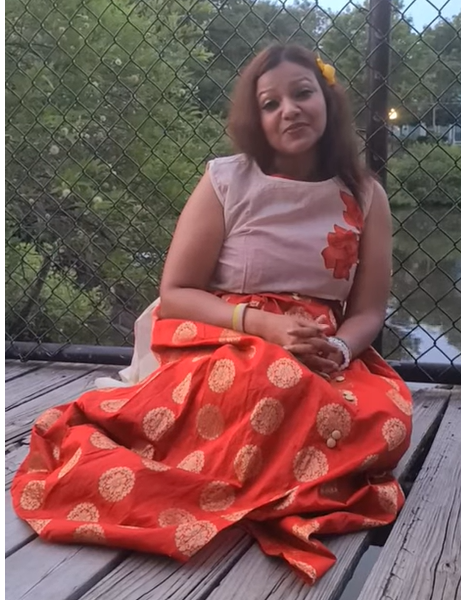Azerbaijanis are voting in snap presidential elections on Wednesday, with a fifth term for Ilham Aliyev seen as a foregone conclusion after Baku’s historic victory over Armenian separatists.
A crackdown on independent media and the absence of any real opposition add to the certainty of an easy win for Aliyev, whose troops recaptured the Nagorno-Karabakh enclave in September.
The oil-rich nation’s main opposition parties are boycotting the vote, which one opposition leader, Ali Kerimli of the National Front party, called an ‘imitation of democracy.’
‘There are no conditions in the country for the conduct of free and fair elections,’ he said.
The six other candidates who are running are little-known and have been busy praising Aliyev as a great statesman and a victorious commander-in-chief since he announced the elections in December, a year ahead of schedule.
At a polling station in central Baku, pensioner Shalalya Abbasova, 68, said she cast her ballot for Aliyev because he ‘did what seemed impossible — accomplished our dream, liberated the occupied territories.’
But another Baku resident, 32-year-old IT specialist Ismet Bagirov, said he decided not to vote as ‘there is nobody to vote for, there are no alternative candidates.’
‘I know many will vote for Aliyev today because he liberated Karabakh. I thank him for this, but there are fundamental issues in the country that remain unresolved.’
Central Election Commission chief Mazahir Panahov said the vote was ‘historic’, with 26 polling stations opened in Karabakh for the first time in Azerbaijan’s post-Soviet history.
Preliminary results will be released at 1700 GMT.
Last month, Aliyev called the Karabakh victory — which saw the entire ethnic-Armenian population of more than 1,00,000 people flee to Armenia — ‘an epochal event unparallelled in Azerbaijan’s history’.
‘The elections will mark the beginning of a new era’ for the country, he said, adding that the country would hold presidential elections on all its territory for the first time.
‘The outcome of Wednesday’s elections in Azerbaijan is known beforehand, Aliyev is set to win,’ said independent analyst Ghia Nodia of the Caucasus Centre for Strategic and International Studies.
‘There is no suspense whatsoever in these elections without a slightest sign of competitiveness.’
Supporters have praised Aliyev for turning a country once thought of as a Soviet backwater into a flourishing energy supplier to Europe.
But critics say he has crushed opposition groups and suffocated independent media.
‘All fundamental rights are being violated in the country, opposition parties can’t function normally, freedom of assembly is restricted, media are under government pressure, and political dissent is being suppressed,’ said Kerimli of the National Front.
In recent months, Azerbaijani authorities have intensified pressure on independent media outlets, arresting several critical journalists who have exposed graft at high levels.
‘The escalating crackdown by Azerbaijani authorities ahead of the elections is not just an attack on individual rights, it’s a widespread, coordinated assault on civil society and the rule of law,’ Amnesty International said on Tuesday.
Aliyev, 62, was first elected president in 2003 after the death of his father Heydar Aliyev, a former KGB officer who had ruled Azerbaijan since 1993.
He was re-elected in 2008, 2013 and — most recently — in 2018 with 86 per cent of the votes.
All the elections were denounced by opposition parties as rigged.
In 2009, Aliyev amended the country’s constitution so he could run for an unlimited number of presidential terms, a move criticised by rights advocates who say he could become president for life.
In 2016, Azerbaijan adopted controversial constitutional amendments that extended the president’s term in office to seven years from five.
Cementing the decades-long dynastic grip on power, the president has appointed his wife Mehriban Aliyeva as first vice president.
Around six million voters are registered for the election monitored by observers from the Organisation for Security and Cooperation in Europe. Polls close at 1500 GMT.





